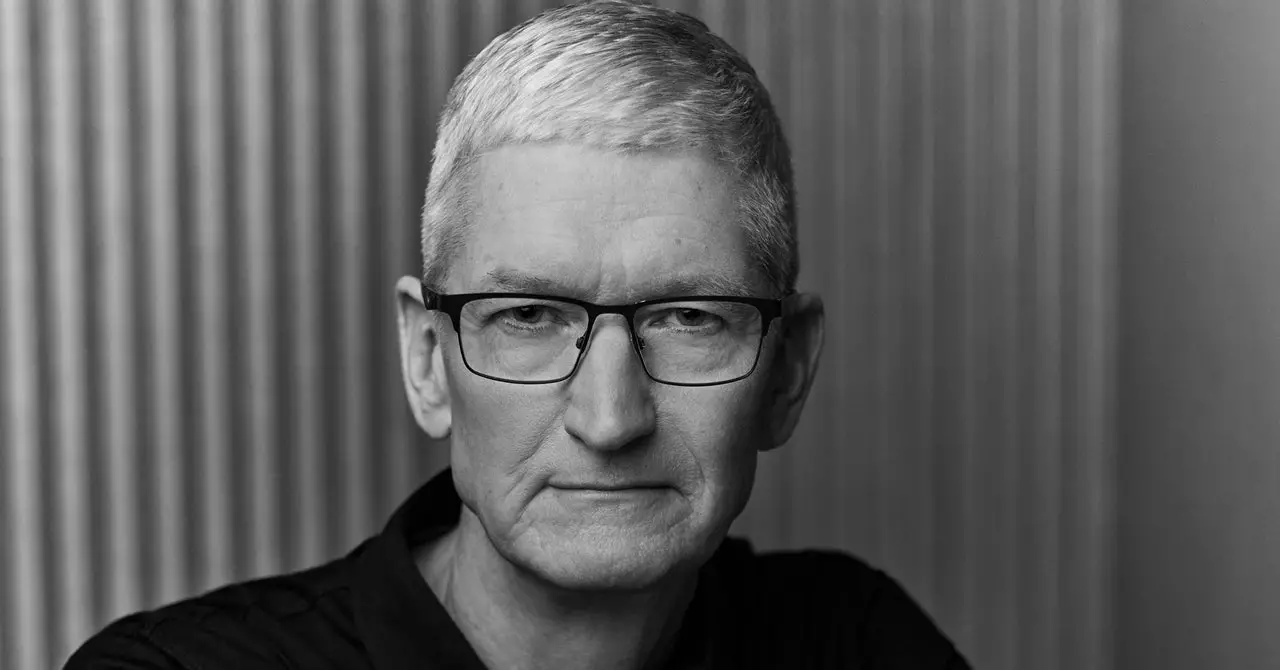The gleaming façade of Apple Park, designed as an architectural marvel, hides a multitude of ambitions beneath its circular exterior. As I revisit this technological utopia, I find myself reflecting on the journey that has unfolded since its inception. Under the leadership of Tim Cook, Apple is at a crossroads, navigating the treacherous waters of an intensely competitive tech landscape. With the imminent launch of Apple Intelligence, the company is set to embrace generative artificial intelligence, a sector in which its rivals have already begun to establish significant dominance.
A New Horizon: Apple’s Commitment to Innovation
It has been several years since Apple Park opened its doors, but the energy present within its walls remains electric. Upon its initial reveal, Cook described the undertaking as a “100-year decision,” emphasizing the depth of commitment Apple has made to its long-term vision. Today, however, the discussion pivots on whether this commitment will pay off in light of Apple’s delayed entry into the AI arena. While corporations in the tech sector have unleashed captivating chatbots and high-flying tech products, Apple, the current titan of the industry, found itself in the limelight for its less-than-beloved augmented reality headset. The stakes are high, necessitating precision and innovation in Apple’s approach to this burgeoning field.
In the words of Cook, Apple has never been one to rush into new trends for the sake of it. Contrary to the notion that being first is synonymous with being the best, he understands that Apple’s strength lies not simply in being a trailblazer but in redefining existing technologies to create an experience that resonates with users. Take the iPod, for example; while not the original MP3 player, its design and seamless integration into the consumer experience revolutionized how music was consumed. Tim Cook seems to be poised to repeat this innovative blueprint, leveraging Apple’s historical strengths and brand voice.
The AI Revolution: Late But Not Lethargic
Critics continue to scrutinize Apple’s perceived tardiness in adopting AI technologies, particularly as competitors have ridden the wave created by advancements in generative AI. Nonetheless, Cook asserts that preparation has been underway well before now. In a strategic move, he brought aboard John Giannandrea from Google, a boon in bolstering Apple’s AI proficiency. The cancellation of the much-publicized smart-car project, while a setback, ultimately redirected resources to enhance machine learning capabilities within existing software ecosystems, setting the stage for what is about to unfold.
With the rollout of Apple Intelligence approaching, it’s clear that Cook aims to respond to this shifting paradigm with tangible offerings. The integration of AI tools across Apple’s product lines signals a key transition that could redefine user engagement. Preliminary presentations hint at exciting features such as custom emoji generation through voice prompts and a user-friendly image construction application. These initiatives indicate that Apple is not just catching up; they are poised to make AI relevant and relatable within their ecosystem.
Among the defining features of Apple’s approach to AI lies its staunch focus on privacy. Tim Cook has established a narrative that prioritizes user data protection, distinguishing Apple from its competitors who may lean heavily on extensive data mining. Apple’s strategy reflects a commitment to retaining computations on-device, minimizing reliance on cloud storage. This approach resonates with a growing consumer desire for privacy and security in an era where data breaches are alarmingly frequent.
While Cook is undeniably skilled at highlighting Apple’s strings of successes, he remains adept at sidestepping discussions of missteps, such as the costly venture into the smart-car domain. His polished demeanor exudes calm confidence that keeps discussions focused on the positive attributes of Apple’s current and forthcoming innovations. In a landscape rife with criticism and pressure, Cook’s restraint reveals a strategist who understands the importance of maintaining a favorable public perception.
The true measure of Apple Intelligence will not come from Cook’s confident assertions but from the experience of the users. Years of engaging with Apple have taught me that the company’s narrative is bolstered by the reality of its products. If this initial foray into AI does not resonate as hoped, Cook’s carefully crafted messaging may come under scrutiny. It wouldn’t be the first time that a product was touted as revolutionary only to fall short of expectations.
As I walk through the halls of Apple Park, the juxtaposition of architectural brilliance and ambitious technological aspirations becomes more apparent. Tim Cook’s steady hand is guiding this corporate giant on its journey into the volatile world of AI, with user experience and privacy at the forefront of its efforts. Only time will tell if Apple can translate its storied legacy into the realm of artificial intelligence while maintaining the principles that have defined its brand.

